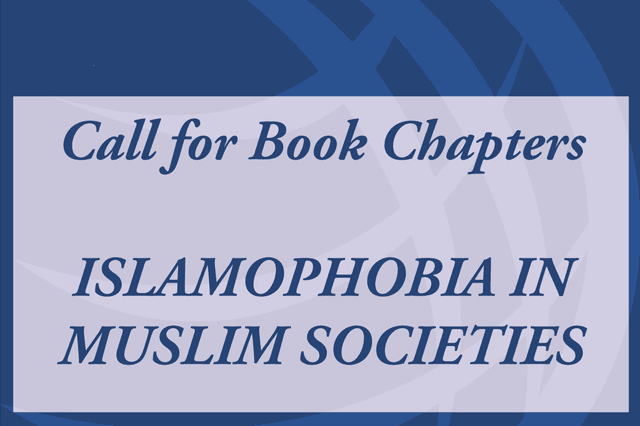Call for Book Chapters: “Islamophobia in Muslim Societies”

About The Event
In the last decade Islamophobia in Western societies where Muslims constitute the minority has been studied extensively. At the same time, Islamophobia is not only a Western phenomenon but a global one. It affects Muslim societies as much due to various historical, political and social reasons. Yet, there is little research, which has been done in this field. The main objective of this book is to analyse the understudied phenomenon of Islamophobia in Muslim majority societies.
Islamophobia here is defined as anti-Muslim racism. It is about a dominant group of people aiming at seizing, stabilizing and widening their power by means of defining a scapegoat – real or invented – and excluding this scapegoat from the resources/rights/definition of a constructed ‘we’. Islamophobia operates by constructing a static ‘Muslim’ identity, which is attributed in negative terms and generalized for all Muslims. At the same time, Islamophobic images are fluid and vary in different contexts, because Islamophobia tells us more about the Islamophobe than it tells us about the Muslims/Islam. Islamophobia can also be understood as a way of regulating and disciplining Muslims, thus framing Islamophobia as political. Islamophobia as a form of racialized governmentality aims at undermining a distinct Muslim identity.
Possible Book Chapter Topics:
- PART I: Theoretical Framework
In this Chapter we plan to publish theoretical studies on Islamophobia in Muslim societies. We do welcome contributions from different disciplines such as Sociology, History, Politics and others. The chapters should tackle and theorize the question such as how one can explain and understand Islamophobia in ‘Muslim’ Societies. Does it differ from Islamophobia in ‘Western’ societies? If yes, in which way? What is the role of the colonial heritage, secularization and modernization.? Are there dialectical relations between ‘Muslim’ and ‘Western’ societies in terms of Islamophobia as a power tool, ideology, and a discourse?
- PART II: Case Studies
In this chapter we intend to include case studies on Islamophobia in Muslim societies from different fields such as education, employment, media, politics, music, etc.
- PART III: Country Studies
Country studies should analyze the history and evolution of Islamophobia in the respective countries; Albanian, Algiers, Azerbaijan, Bangladesh, Bosnia Herzegovina, Chechnya, Cyprus, Egypt, Indonesia, Iraq, Jordan, Kazakhstan, Kirgizstan, Kosovo, Libya, Malaysia, Morocco, Pakistan, Sudan, Syria, Tunisia, Turkey, Turkmenistan, Uzbekistan.
Please be reminded that the above suggested topics can be changed to fit the expertise and interests of the respective authors. This interdisciplinary, edited book will cover various topics on history, culture, media, education, politics, international relations, etc. However, such topics should be considered in view of Islamophobia in Muslim societies which is the essence of the book.
Source: jahrbuch-islamophobie.de


We're always eager to hear from you.
If you’d like to learn more about us or have a general comments and suggestions about the site, email us at